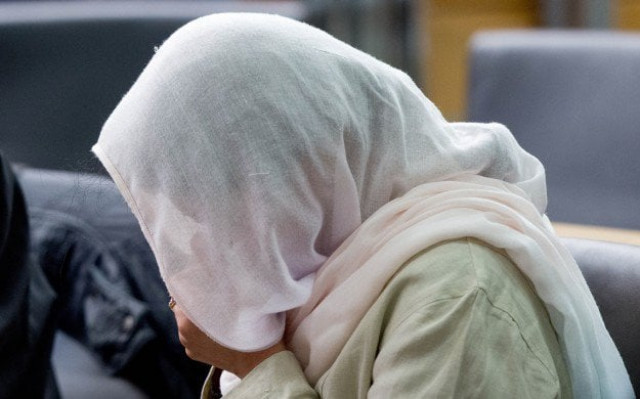Punjab Police to resgister honour killing cases under Section 311
In most cases, accused are either brother, father or close relatives

PHOTO: EXPRESS/FILE
For the purpose, Punjab Police have issued orders to insert Section 311 (Ta'zir after waiver or compounding of the right of qisas in qatl-i-amd) of Pakistan Penal Code (PPC).
The order issued by Additional Inspector General of Police Investigations Abu Bakar Khuda Baksh to all the officers including RPOs and DPOs read as follows: “Honour killing of women is a national tragedy. In Punjab alone, 229 women were killed in 2016 and 222 in 2017.”
Honour-killing survivor fears violence from soon to be freed relatives
The gravity of the issue could be gauged further from a report about violence against women compiled by Aurat Foundation. The report presented a gruesome picture of the cases of honour killings that at least 3,973 women were killed from 2008 to 2014.
The report revealed that 475 women were killed in 2008, 604 in 2009, 557 in 2010, 705 in 2011, 432 in 2012, 487 in 2013 and 713 in 2014. More worrying than these figures is that the culprits almost enjoyed impunity in most cases. “Only 15 accused were convicted in 2016 and six in 2017,” read the order by IGP further.
The notification added that such cases reach reconciliation as complainants and witnesses were the relatives of the victim and the accused. In such cases, police registered a case under Section 302 (intentional murder) of PPC.
Mostly, the accused were either brother, cousin, father or any other close relative. Also, the complainant in such murder cases was also usually a close member of the family. After some time, the complainant and the defendant in connivance would withdraw the case as intentional murder was compoundable, according to Pakistani Law.
Women still victims of honour killings despite new law
The misuse of the lacuna in the law can be understood from a case reported by The Express Tribune in 2016 in which an accused, being the father of the victim, gets vindicated by forgiving himself.
In 2014, prime accused Faqeer Muhammad along with his son, Muhammad Ilyas, and nephew, Muhammad Tahir, had shot dead his daughter and her paramour Ghulam Abbas. During the trial before the court of additional district and sessions judge Nadia Ikram Malik, accused Faqeer Muhammad not only ‘pardoned himself’ but also his son and nephew who were his accomplices in the crime. The accused in his statement said: “Kiran Bibi was my real daughter. She was unmarried at the time of her murder. There are no other legal heirs of the deceased except her mother Bushra Bibi and I. “I have forgiven the accused in the name of Almighty Allah and have no objection to their acquittal. I also waive my right of qisas (retribution) and diyat (blood money).”
Abbas’ mother Azmat Bibi had named three accused in the FIR she had registered under Section 302. Later, the complainant moved an application, requesting that the court make the offence (the murder of her son) compoundable under Section 345 of CrPC. The court allowed the application after which Azmat Bibi and her second son Waqas Ali pardoned the accused, pleading that they had no objection to their acquittal and also waived their right of qisas and diyat.
This is not the first case in which the accused and the complainant were close relatives of the victim and reached reconciliation. In 2015, the Parliament had passed the law against honour killings (Criminal Amendment Bill) 2015. The law stipulated strict punishment for an honour crime convict even if a family member pardoned the culprit. According to the new law, judges were also supposed to sentence an honour crime convict to life in prison whether the victim’s immediate family pardons him/her or not.
The letter issued also pointed to this law. It read: “Such cases tainted the image of Pakistan on human and women rights internationally. There was a dire need to take measures to stop such crimes. Parliament had also passed legislation against such crimes. These were categorised as a crime against the state and thus non-compoundable.” The letter has also directed police officers to insert section 311 of PPC in honour-killing cases.
Published in The Express Tribune, May 13th, 2018.



















COMMENTS
Comments are moderated and generally will be posted if they are on-topic and not abusive.
For more information, please see our Comments FAQ